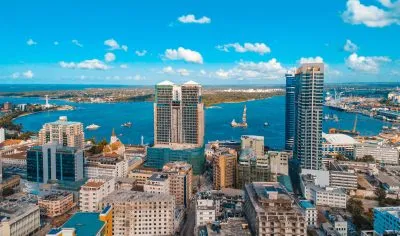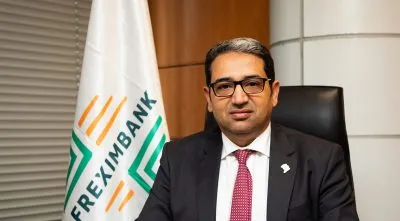Thanks to an initiative by a Singapore-based entrepreneur, West Africa’s prolific moto taxi has joined the digital age and is winning grateful new customers by the hour. Raphael Dana talks with Anver Versi.
Raphael Dana wants to do for the humble African motorcycle taxi what Uber has done for the standard taxi. His company, Gozem, already operates a fleet of slick-looking motorbike taxis – linked on a smartphone app – in Benin and Togo.
Motorbike taxis – or moto taxis – are becoming ubiquitous in many African cities. They can cut through traffic jams and they are cheap. They are regulated to carry only one pillion passenger at a time so you can escape the crush of bodies in the traditional taxi vans.
But getting hold of one of these nifty personal transporters when you want them and where you want them is another matter altogether. You can only stand on the roadside and hope that one of them that is free comes along; or walk to where a cluster of them are parked – if you know where that is.
The result is that the connection between the potential customer and the taxi service provider is often hit or miss leading to frustration on the one side and loss of revenue and wastage of time on the other.
But not anymore if you happen to live in Benin or Togo. You simply call up the bike taxi on your smartphone app and in a flash, your bike rider, kitted out in the Gozem livery, complete with a mandatory helmet, has pulled up smartly.
You get on board comfortable in the knowledge that both the rider and the bike have had to pass stringent tests and that in addition, his character has been investigated before he gets a clean bill of health. This is a vital element in an area where people are understandably reluctant to put themselves in the hands of unknown, unvetted strangers.
“The response has been tremendous,” Raphael Dana told me over lunch in Singapore. “The demand was there – we simply filled a need.”
Dana and his co-founder, Emeka Ajene established the company only in 2018 and they already have 1,600 drivers on their books. The inspiration came from SE Asia where the moto taxis are now not only very much part of the urban transport landscape, but the sophisticated use of digital technology has made them a very efficient, safe and affordable mode of travel.
Grab and Gojek rule the roost. At last count, Grab had 710,000 drivers, 36m users and was worth $11bn; Gojek had 400,000 drivers, 33m users and was worth $10bn. Africa, Dana reckons, can be bigger.
Life changing
Dana is a Swiss national residing in Singapore but he has deep African roots. His father was Tunisian and they had a family home in Togo. He cut his business teeth setting up the first internet company in Bangui, CAR, before selling it off. He worked in IT, learning the ins and outs of apps and found himself in Singapore.

Raphael Dana, Co-Founder – Gozem Africa
But the lure of Africa was still there. On a visit to Benin, he saw a proliferation of moto taxis but the operations were haphazard compared to the slickness he has observed in SE Asia. The idea clicked – why not bring the business model from Asia, which has a lot more in common with Africa than the West, to West Africa? With his technical expertise with apps, the pieces fell into place and Gozem was born. But this, he says, is just the beginning. Douala in Cameroon and Libreville in Gabon are next on the list. His team is already on the ground, collecting data. Several more West African countries have also been earmarked.
Besides the convenience and efficiency of the system, safety, for drivers and passengers is paramount he says. Drivers are all insured and have to undergo mandatory training, including road safety. They must carry two helmets, one for themselves and one for the passengers. “This can save many lives – too many people die in accidents because they don’t have safety features such as helmets.”
He is also working on expanding the scope of his services to transporting packages and parcels, essential medication, food, providing the ‘last mile’ linkage and so forth. He hopes that in time, payments can also be made electronically.
“Gozem is going to be very life-changing for people,” he said. “This new access to digital services can solve many of the problems people are facing now.”
For the thousands of moto taxi passengers in Benin and Togo who can now summon their favourite mode of transport at the touch of a button, life has already changed for the better.
Want to continue reading? Subscribe today.
You've read all your free articles for this month! Subscribe now to enjoy full access to our content.
Digital Monthly
£8.00 / month
Receive full unlimited access to our articles, opinions, podcasts and more.
Digital Yearly
£70.00 / year
Our best value offer - save £26 and gain access to all of our digital content for an entire year!
 Sign in with Google
Sign in with Google 



